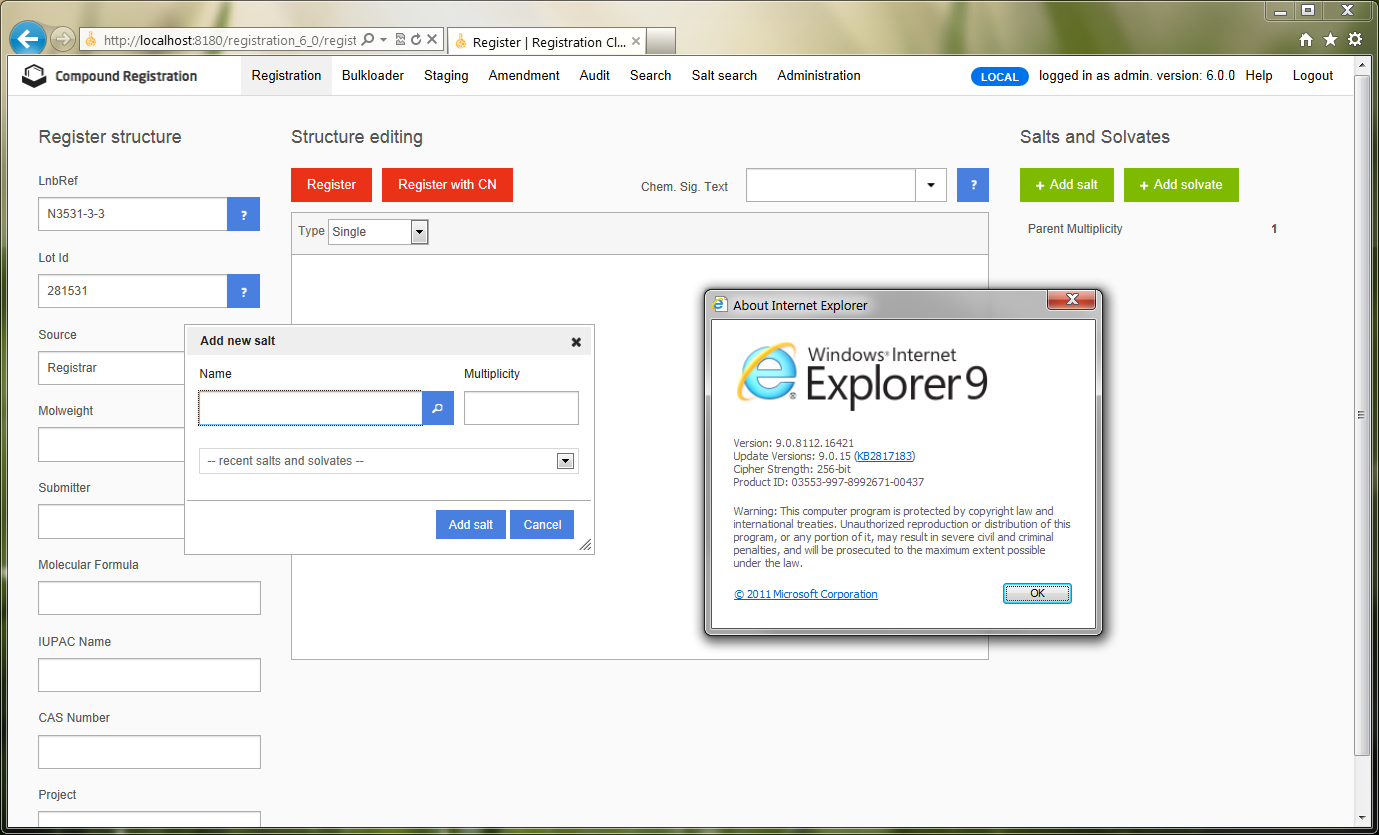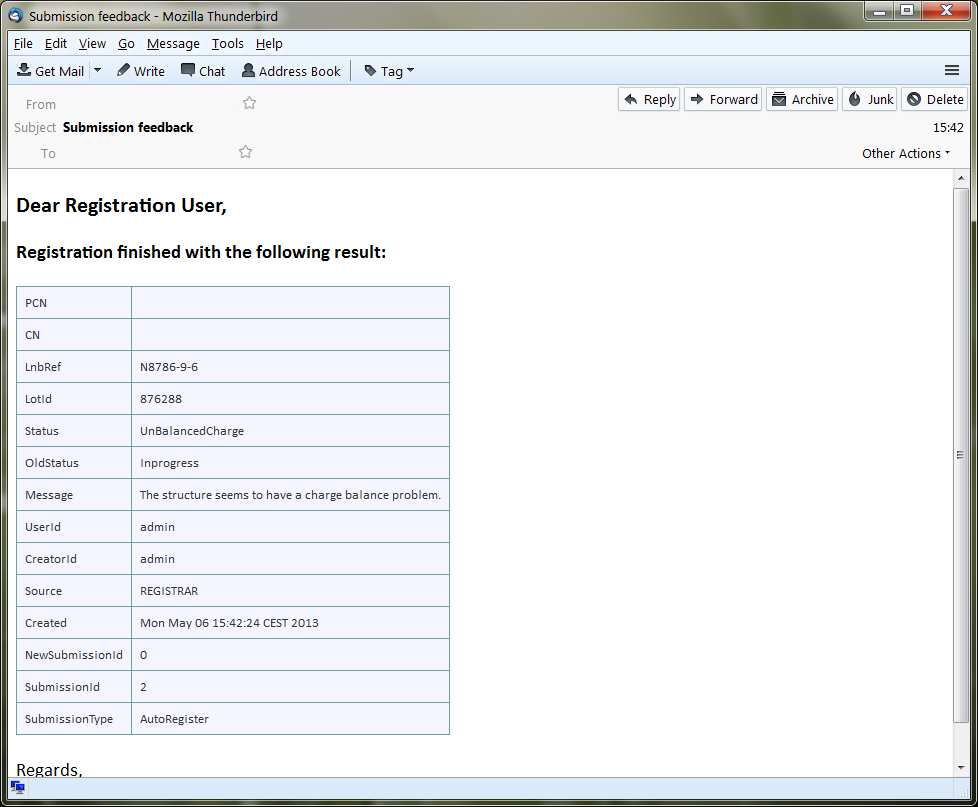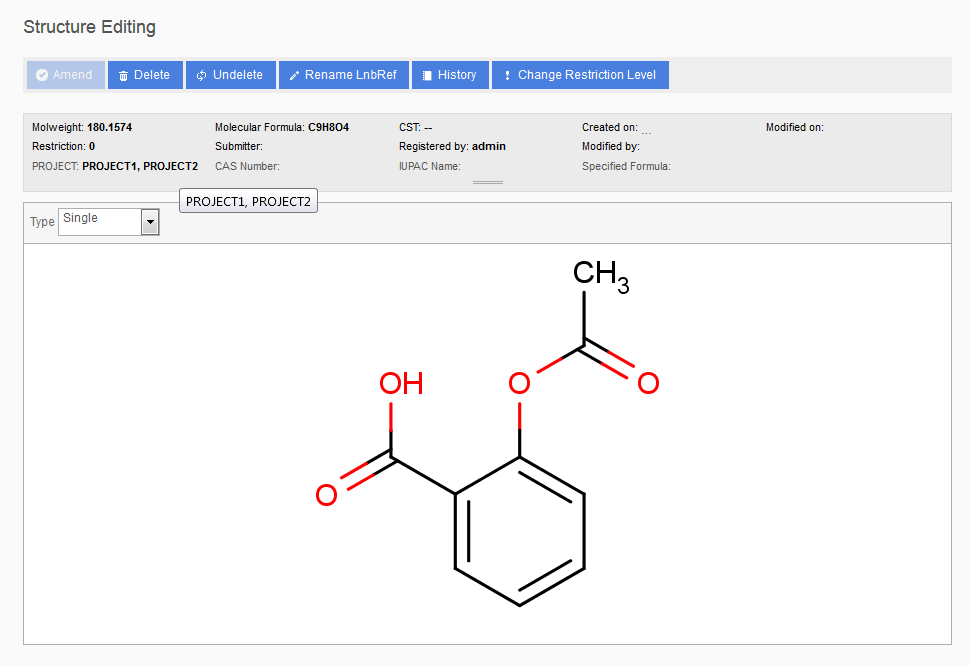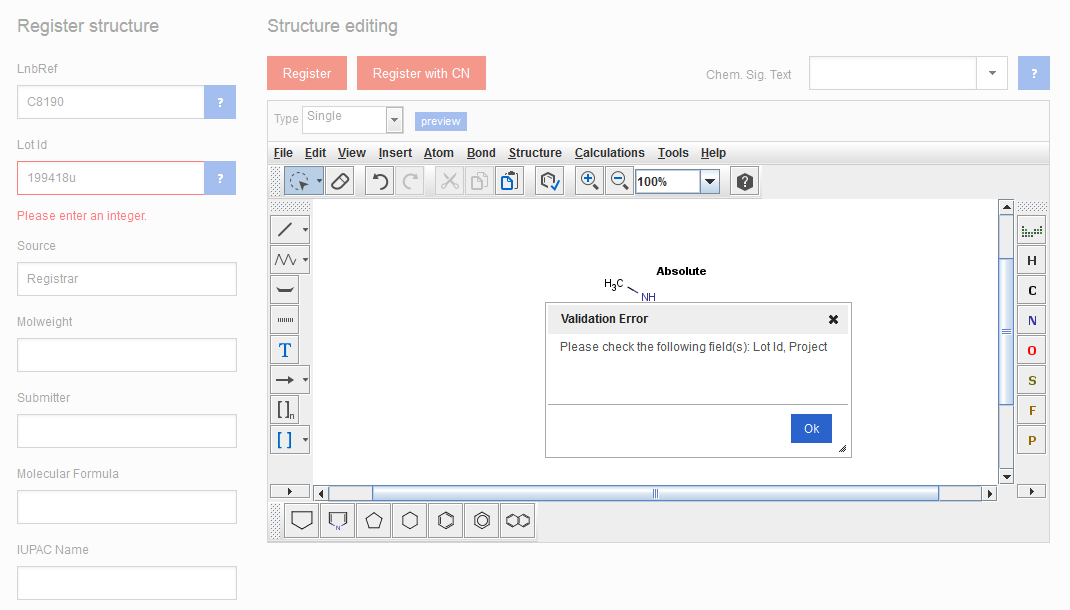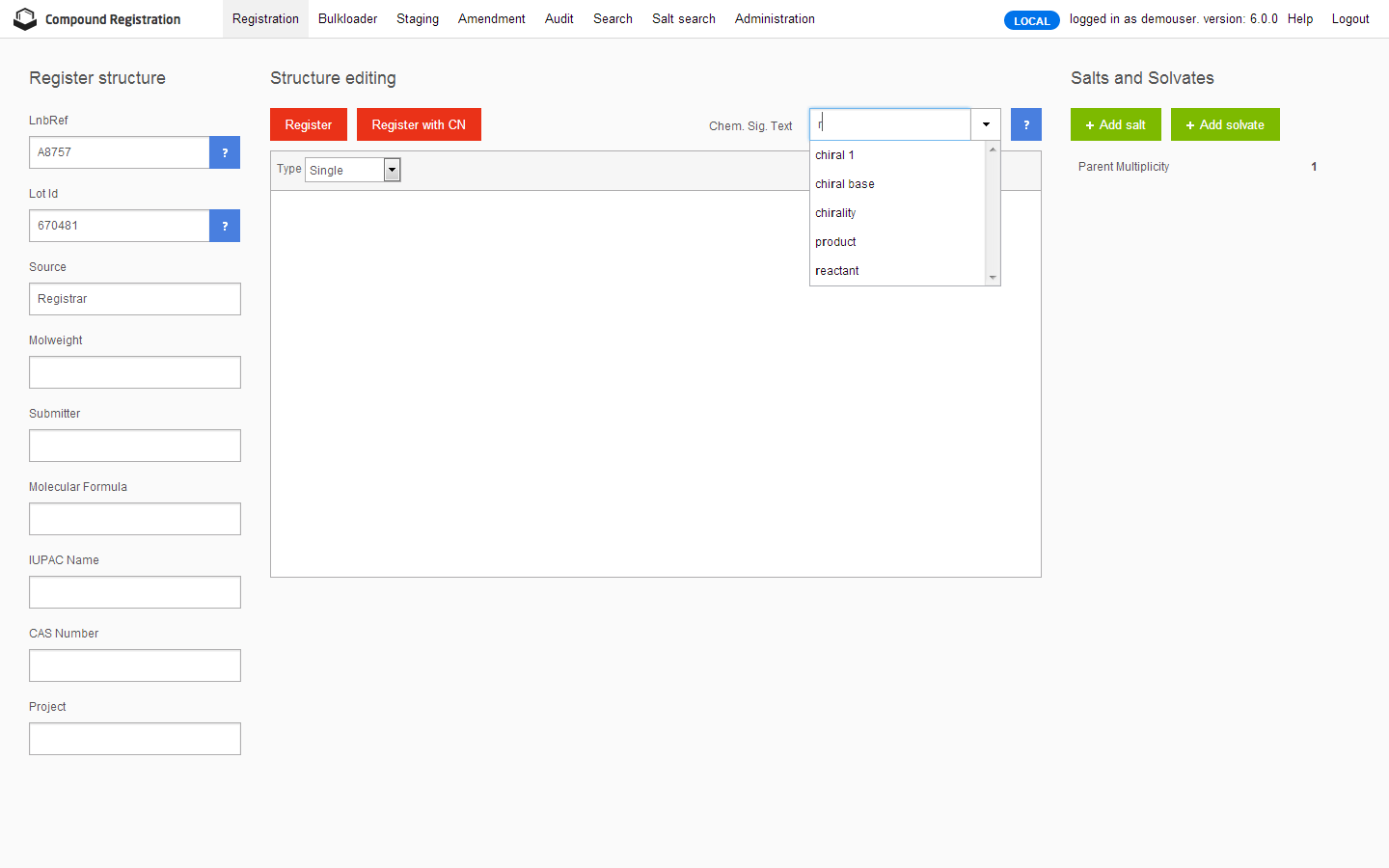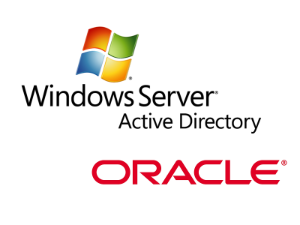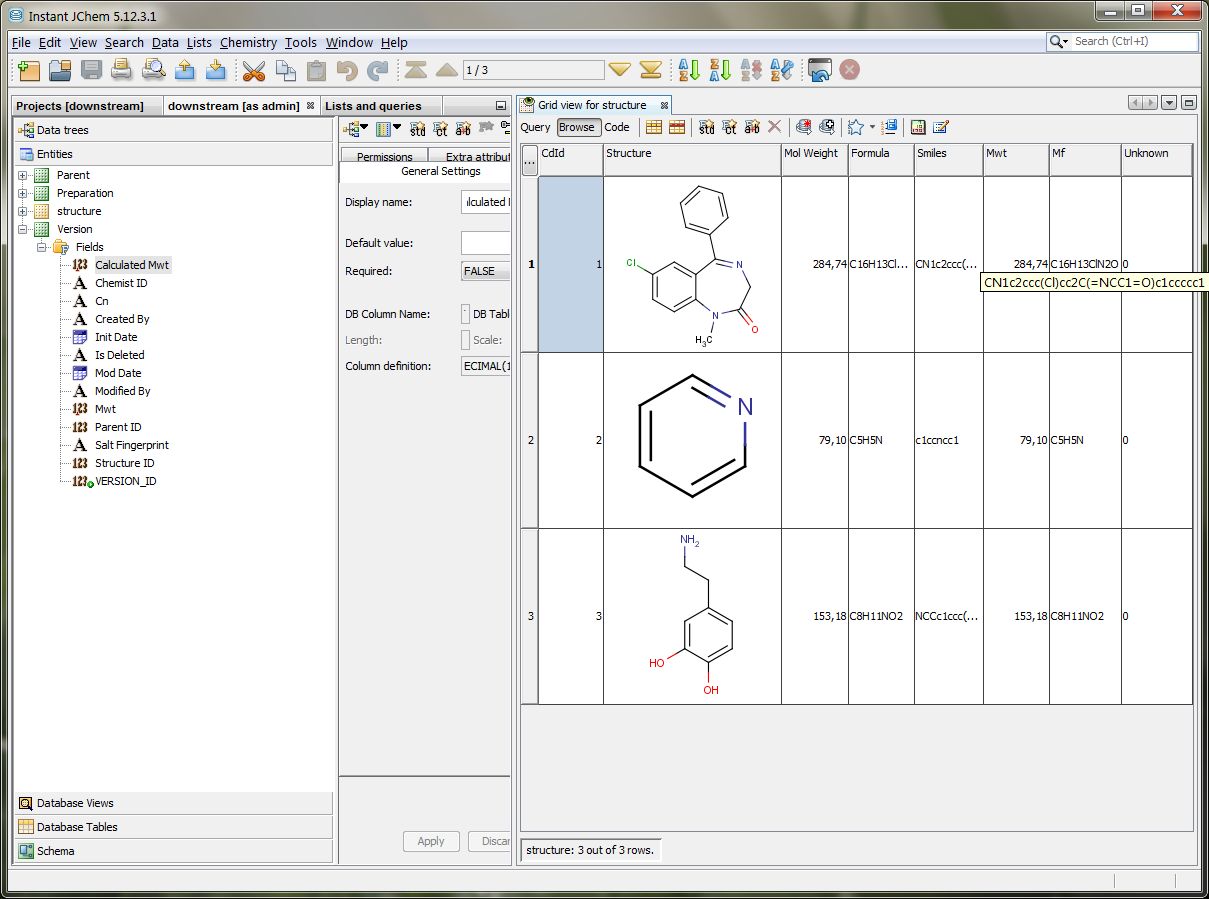Compound Registration Release Notes
Compound Registration 15.1.1
January, 2015
|
Administration web interface. Business workflow parameters and UI customization can be applied by administrators on an easy-to-use web interface. |
Registration of uncertain structures (Markush) . Ability to register poorly defined structures and/or libraries. |
|
Custom workflow steps. An API is exposed that enables the addition of custom validation/calculation steps to the registration workflow. |
Editing of additional data fields. The registered metadata fields of the structure can be easily edited, having a full audit of the changes. |
|
Re-designed Amendment page. The layout of the Amendment page is changed in order to provide the same functionality that is available during registration (structure checking/fixing, stereo analysis, etc). |
Dashboard page. The web application features a new landing/dashboard page, that displays information about the recent registrations of the logged-in user. |
|
Registration of compounds, libraries without preparations. The upload of "virtual libraries" is supported: registrations can be initiated simply by submitting a structure, without providing any preparation level information. |
|
Compound Registration 14.9.8
October, 2014
|
Submission export-import for offline correction. Ability to export failing items, correct them offline and re-import for registration; support for certain CRO workflows. |
Flexible client configuration. Layout of the registration page can be configured in detail (input field types, validations, etc), the navigation bar can be customized. |
|
Metadata storage changes. Flexible storage solution for all the non-structural data that has to be saved in the registration database. |
Integrate ID generation into a corporate environment. Ability to call a central corporate ID generation web-service. |
|
Advanced registration page. The same structure checking/fixing, stereo analysis and structure match display options are exposed on the Registration page and on the Submission correction page. |
New bulk upload solution. Redesigned, simplified user interface for SD file upload; robust server side queue system for the submissions. |
Compound Registration 6.3
June, 2014
|
Advanced structure correction interface. Real-time structure checking/fixing options; new “Stereoanalyzer” report about the different stereo features in a structure; comment generation based on stereo markup. |
Improved e-mail feedback. Single summary e-mail for a bulk upload process; daily notification about pending tasks. |
|
Improved authentication process. In addition to the existing modes, SAML-SSO single sign-on solution is supported now. |
|
Compound Registration 6.2
January, 2014
|
Standardized parameter and configuration handling. All the parameters of the application (except for a small set that defines the database connections) are stored in a common table within the database schema. |
Redesign staging area user interface. A new table design is included, simplified pagination-free usage, unified visual style, user group dependent tab configuration, … |
|
Support for migration of existing registry data. It is possible now to force existing compound IDs during the registration whenever it does not violate the defined business rules. MySQL to Oracle migration tool. A command line Java application is provided that can be used to convert the content of an existing MySQL based registry database into an Oracle one. |
General dictionary handling module. A completely general dictionary module is provided; arbitrary dictionaries can be defined and used e.g. in the configurable dropdown lists of fields on the Registration page. |
|
Improved authentication process. A Spring based solution has been implemented that supports authentication against local DB, LDAP, AD (and reasonable combination of these). |
|
Compound Registration 6.1
September, 2013
|
Project based access control is implemented for registration, amendment and search functionalities. The project membership and permissions can easily be configured on an administration GUI page. Users are also able to filter by project information on the search page. |
Configurable corporate IDs can be generated now on lot/batch level. The version level can be optionally hidden in the user interface (Amendment page, Search page) now. |
|
Marvin4JS is available as a structure editor besides MarvinSketch applet and ChemDraw. The default editor is still MarvinSketch. |
Salts and solvates can be imported now from an SD file. The users are able to map the necessary fields of an SD file and submit a large set of structures in one session to the salt/solvate dictionary. |
|
A new service method called AllocateNextPcns has been created that is able to generate and reserve a set of corporate IDs for external use. |
Search page table columns are now configurable. All the columns - except for the stucture - can be shown/hidden, sortable/unsortable, etc. |
Compound Registration 6.0
May, 2013
|
tructure editor can be easily configured within the web client. ChemDraw can be used as a stucture editor instead of MarvinSketch if the browser plugin is installed on the client. |
Compound Registration web client in now compatible with Internet Explorer (v9 or higher). |
|
Automated e-mail feedback is available that informs the submitter of a compound about the success of the registration. The generated IDs are returned if successful, or the validation error if failed. |
Project information data can be stored within the registry together with the registered compounds. The project information can be requested and displayed for parent, version and lot levels. The content of the project input field can be validated against an arbitrary external database query. |
|
Data input fields on the Registration page are configurable. Mandatory/optional fields and also data validation rules can be defined in a configuration file. Input fields have real-time validation. |
Chemically Significant Text (CST) can now be conveniently entered based on a dictionary. The dictionary can be easily maintained on the Administration page. |
|
Authentication can be integrated to the corporate Active Directory service. On the back-end side Oracle 11g is supported as a DBMS. |
A downstream publisher solution is available that is able to publish all structure data modifications of the registry to a JMS messaging server. A default implementation of the message consumer is also provided that stores the published data in a predefined database schema similar to the registry itself. |
?
Real-time structure
checking/fixing options
?
New “Stereoanalyzer”
report about the different
stereo features in a
structure
Comment generation
based on stereo markup
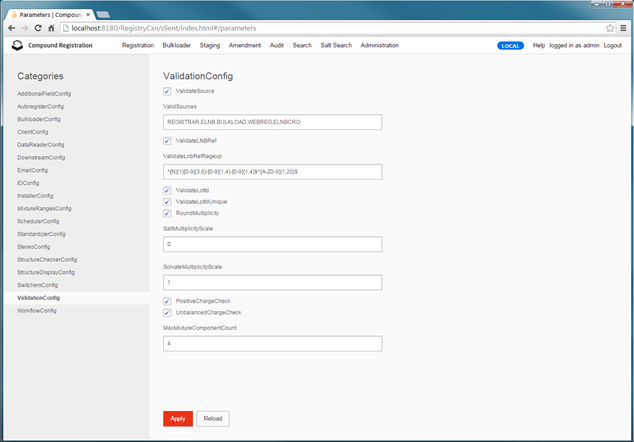
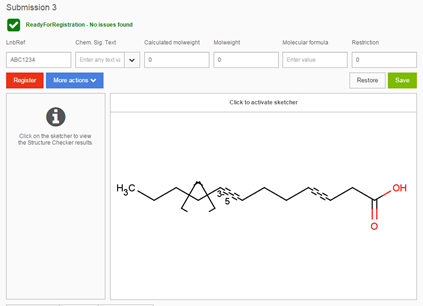


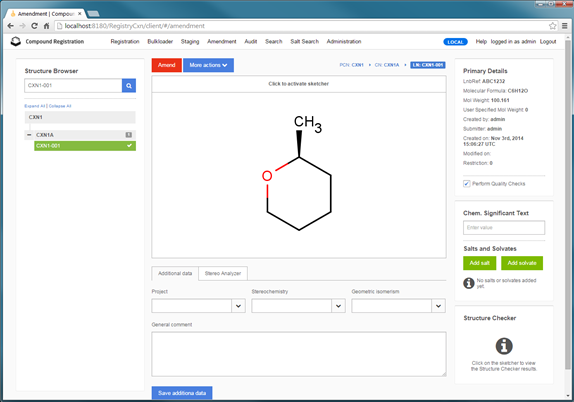
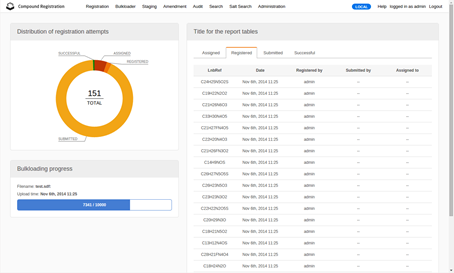
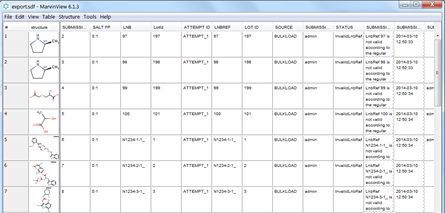
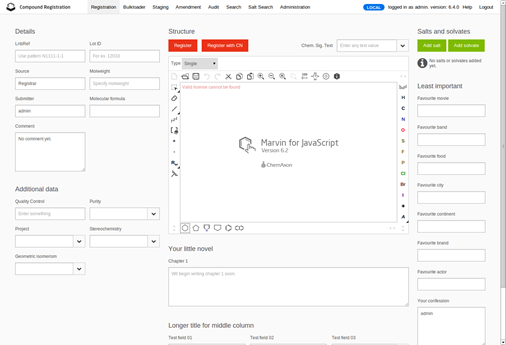
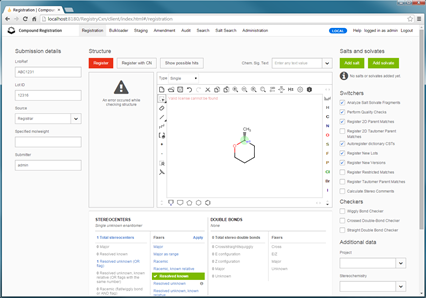
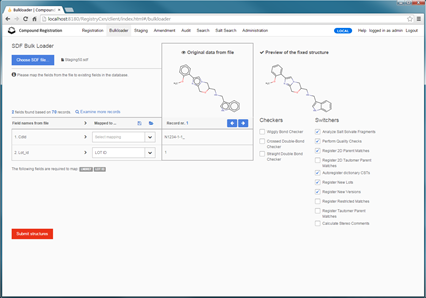
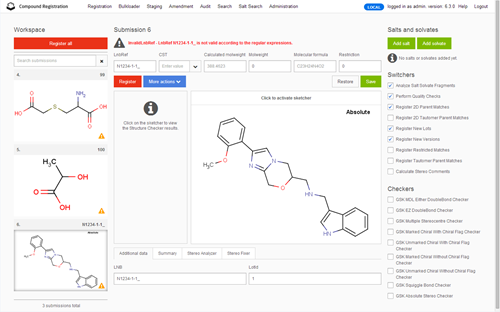

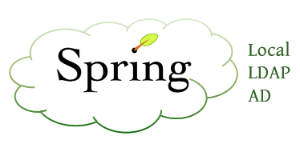
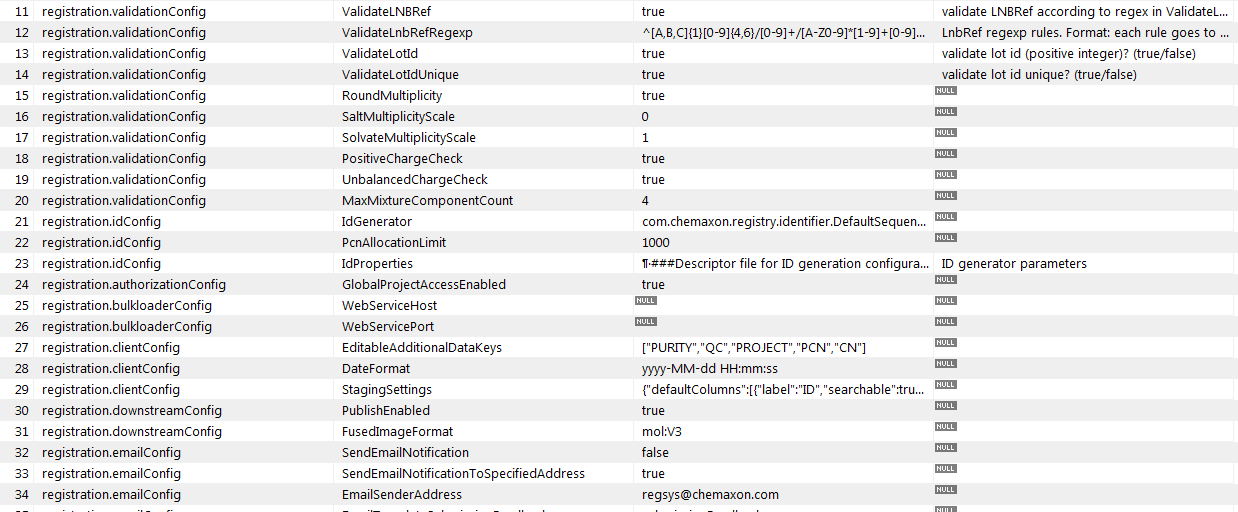
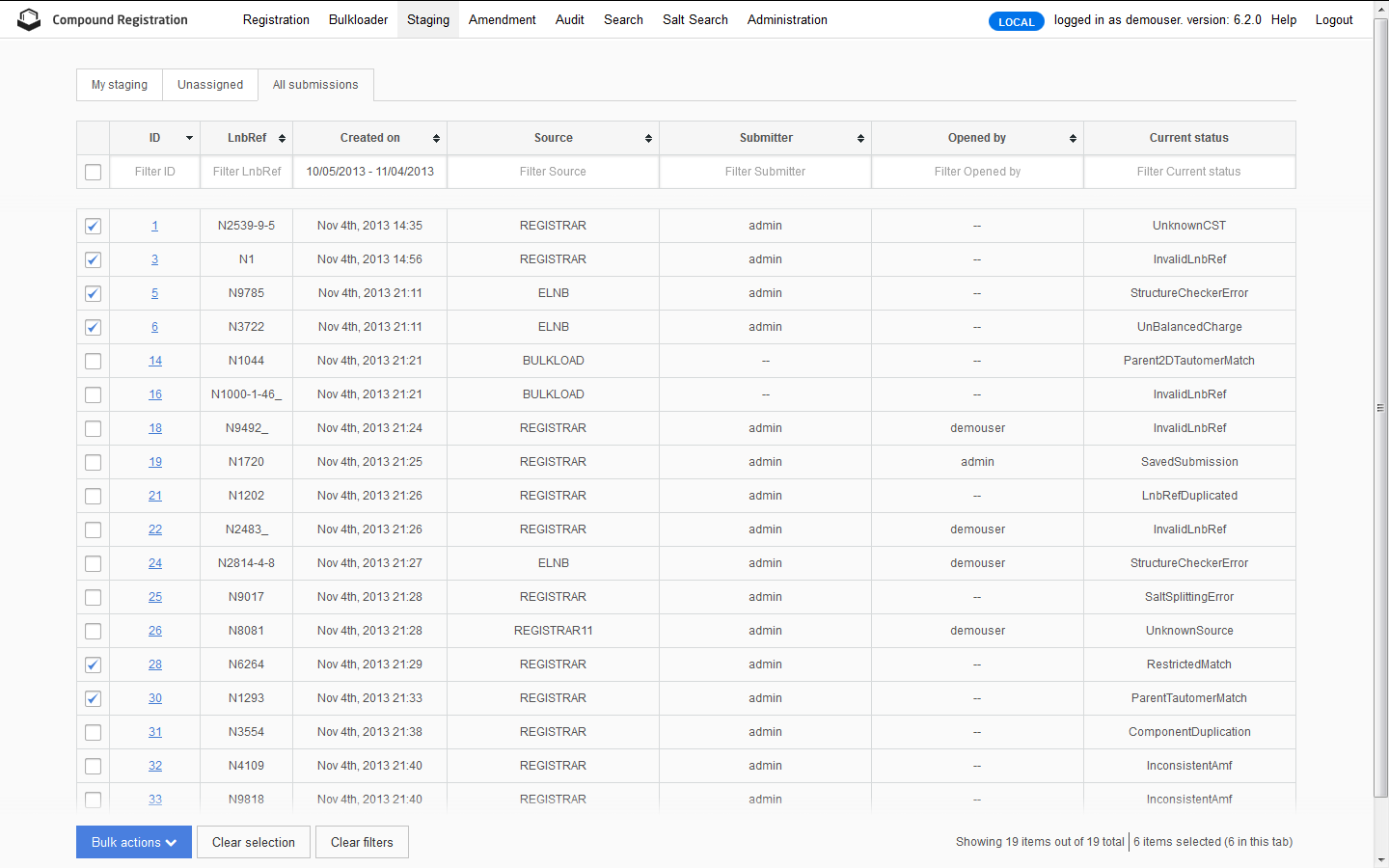
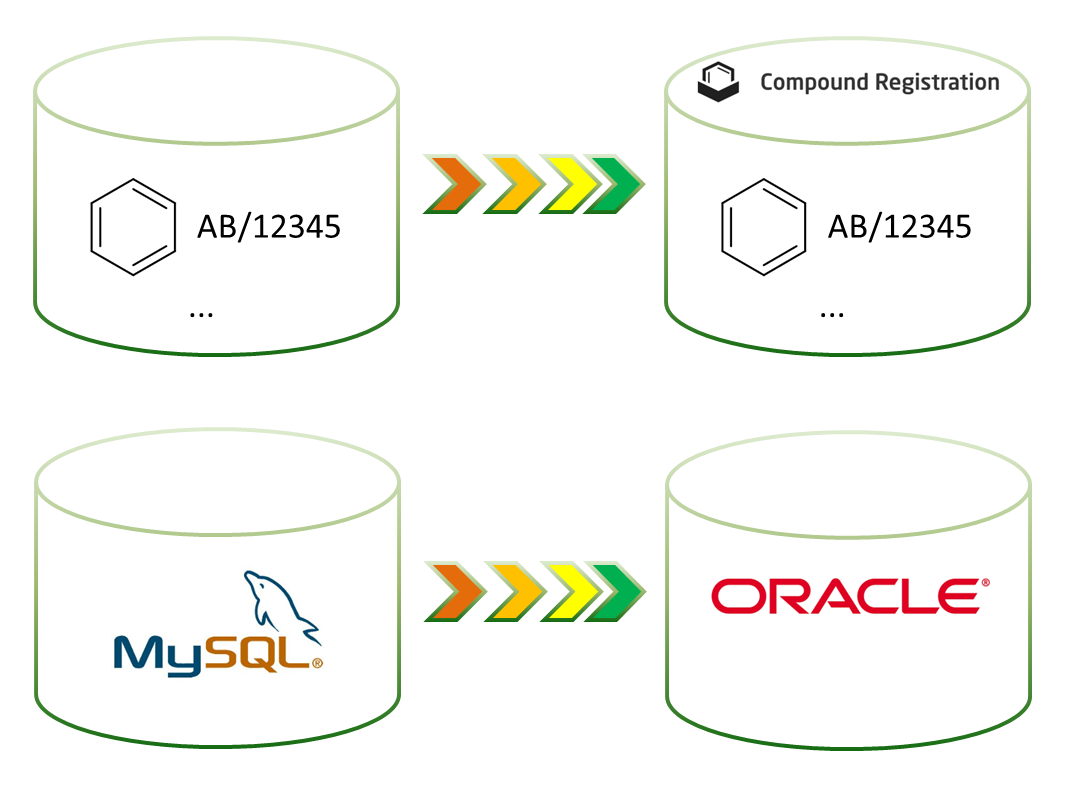
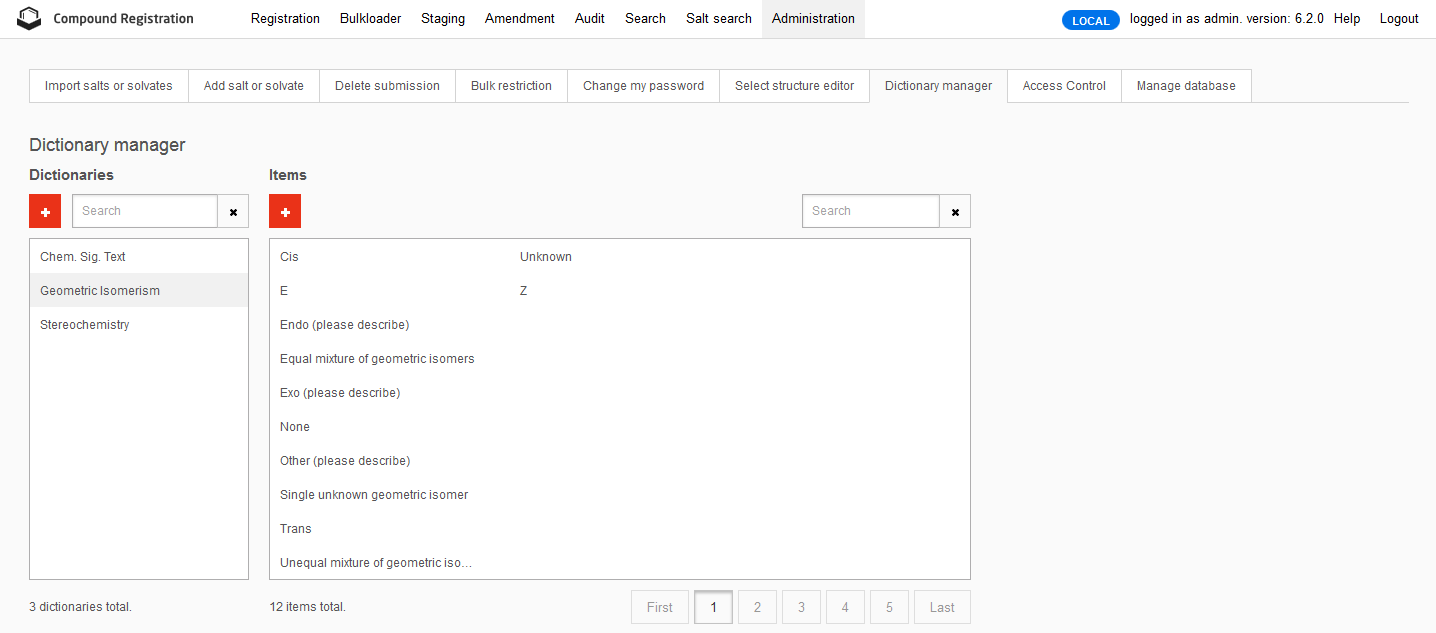
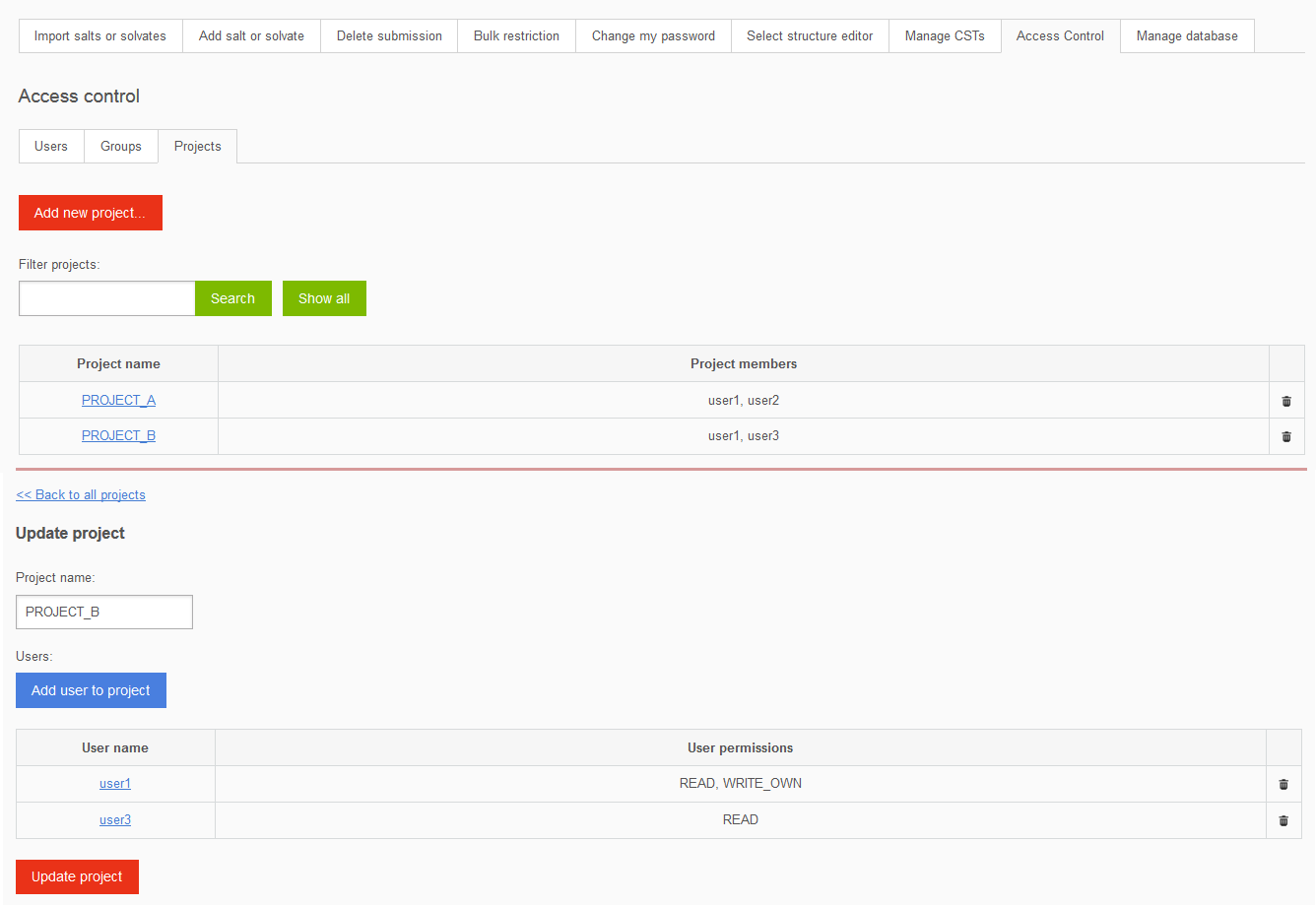
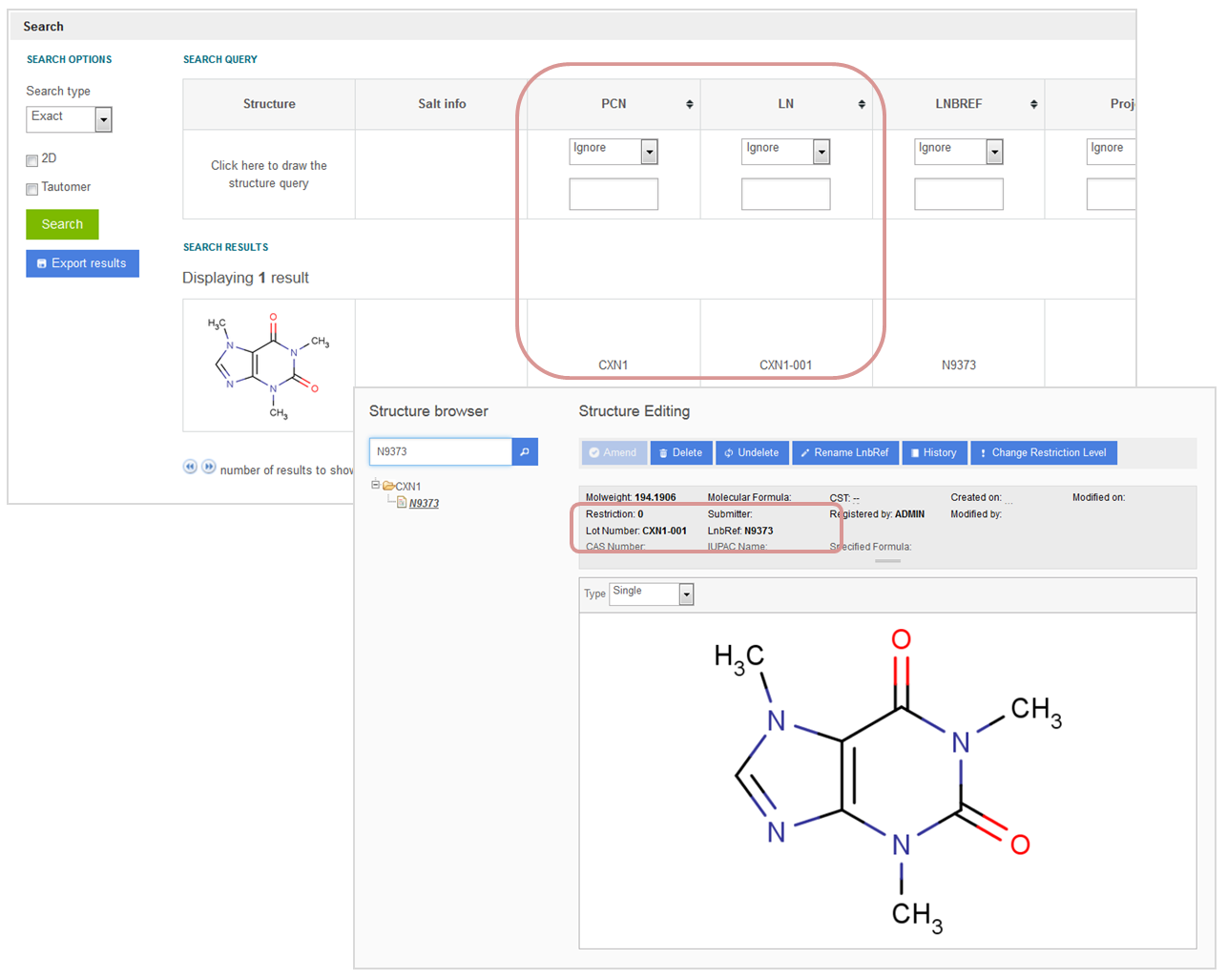
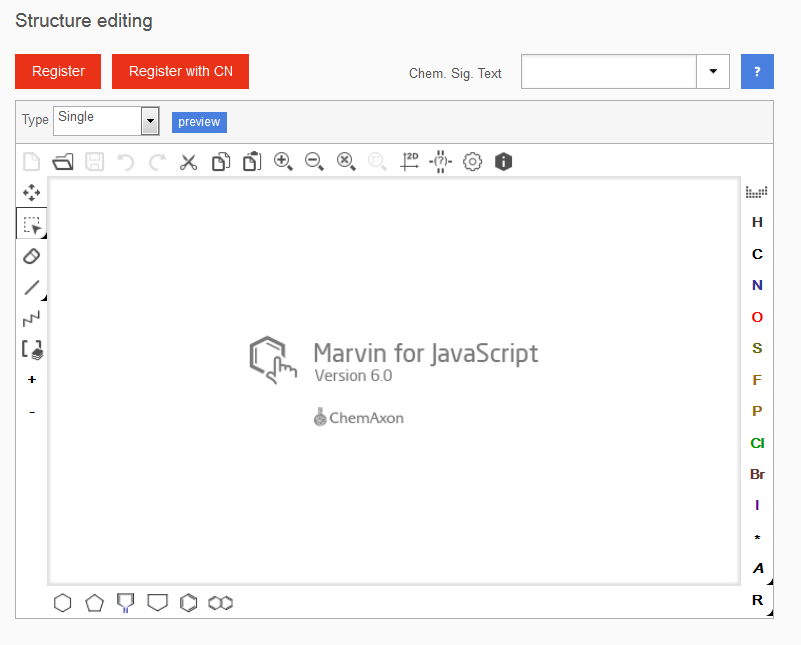
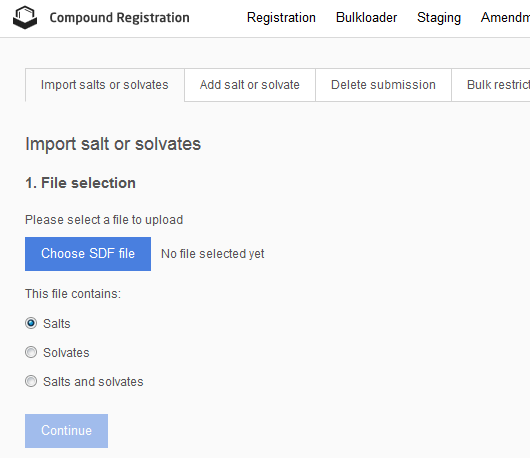

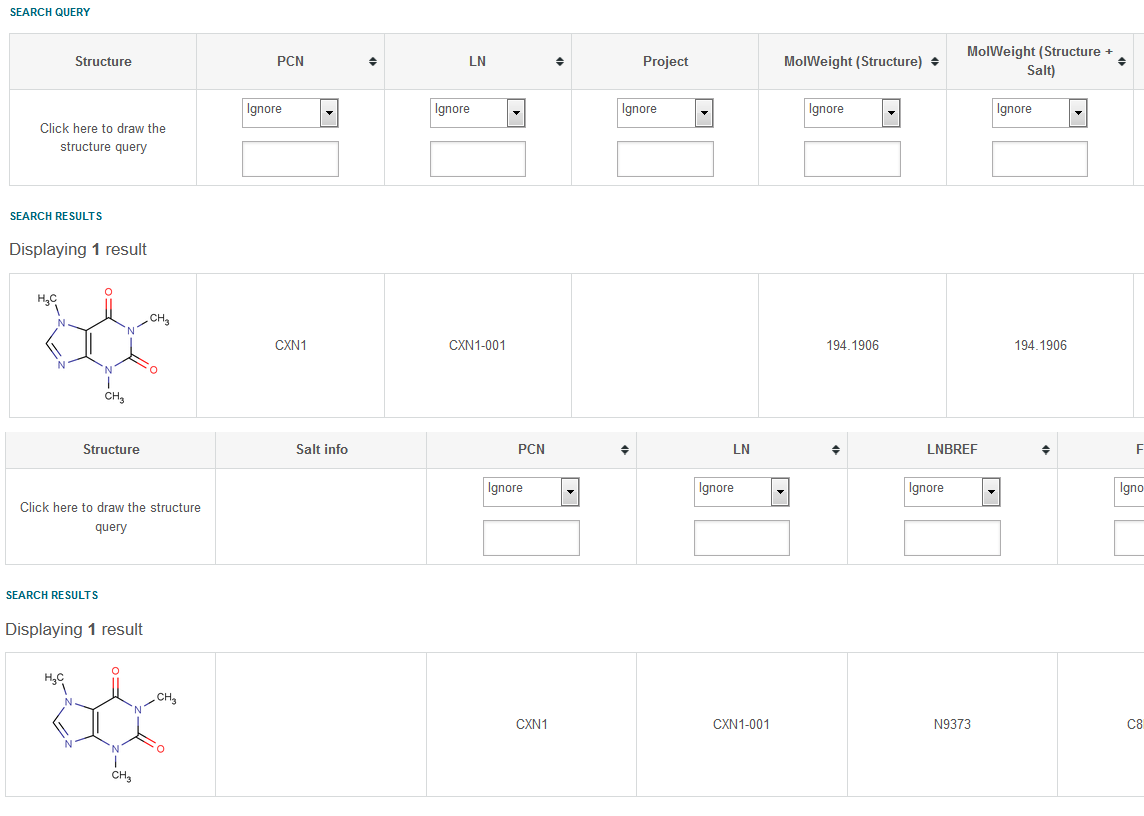
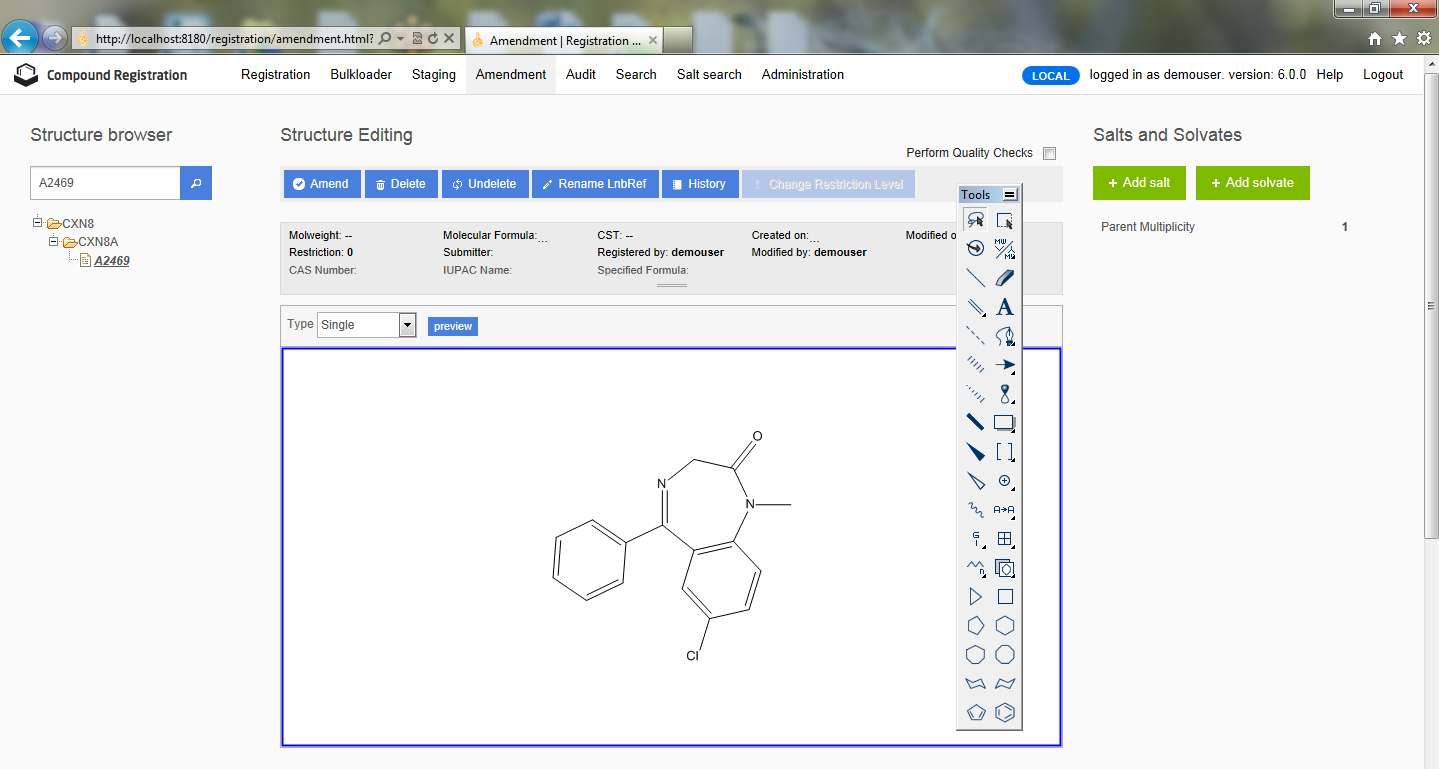 S
S 